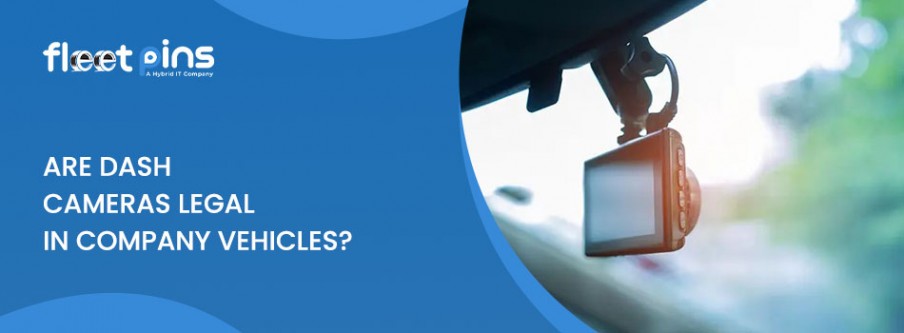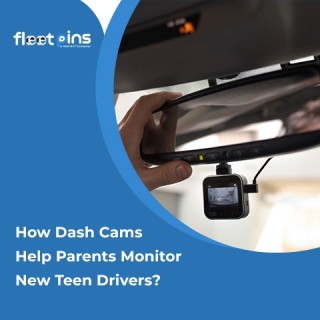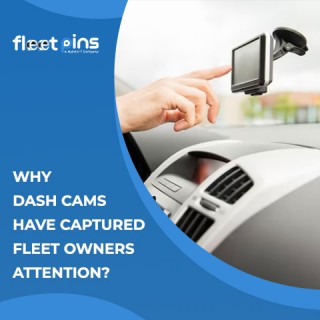
- On 2024-08-23
Are Dash Cameras Legal in Company Vehicles? | Fleet Pins Guide
Dash cameras, commonly known as dash cams, have become increasingly popular in both personal and company vehicles. They provide valuable footage that can be used for various purposes, such as accident documentation and even protection against false claims. However, the legality of using dash cameras in company vehicles can be complex, depending on several factors like location, privacy concerns, and specific regulations.
At Fleet Pins let’s explore the legality of dash cameras in company vehicles from multiple perspectives, providing a comprehensive understanding of the issue.
General Legality of Dash Cameras
Dash cameras are generally legal to use in company vehicles in many countries, including the United States, the United Kingdom, Canada, and many European nations. However, the legal placement of dash cam depends on how and where the cameras are installed, as well as how the footage is used.
Windshield Placement:
In some regions, placing a dash camera on the windshield may violate laws regarding obstructed views. Dash cam laws by state for example, in certain U.S. states like California and New York, regulations exist on where a dash cam can be placed. It is to ensure that it does not interfere with the driver’s view of the road.
Interior Recording:
Recording the interior of a vehicle, including audio, may raise privacy concerns. In some jurisdictions, you may need to inform all passengers that they are being recorded, or even obtain their consent.
You May Also Read: How Does a Fleet Dash Cam Work: A Complete Guide
Privacy Concerns and Employee Rights
When it comes to company vehicles, the use of dash cameras can raise significant privacy concerns, especially when recording employees.
Employee Consent:
In many countries, employers must obtain consent from employees before installing dash cameras in vehicles used for work. This is particularly important if the cameras record inside the vehicle, capturing audio and video of employees while they work.
Purpose of Recording:
Employers must clearly define the purpose of using dash cameras, such as improving safety, monitoring vehicle usage, or protecting the company against liability. Employees should be informed of these purposes to avoid potential legal issues.
Data Protection Laws:
Many countries have strict data protection laws that govern how video footage can be collected, stored, and used. For example, the General Data Protection Regulation (GDPR) in the European Union imposes strict rules on the processing of personal data, including video footage from dash cams.
You May Also Read: What is Loop Recording on a Dash Cam? Essential Guide and Benefits
Liability and Legal Implications
Dash cameras can be a double-edged sword when it comes to legal liability.
Evidence in Accidents:
Dash cam footage can be used as evidence in accident investigations. It can help prove fault or innocence in a collision, which can be beneficial for both the company and the employee. However, it can also be used against the company if the footage shows negligent driving or other violations.
Compliance with Laws:
Companies must ensure that their use of dash cameras complies with local laws. Failure to do so can result in legal penalties, fines, or even lawsuits from employees or third parties who feel their privacy has been violated.
Insurance Implications:
Some insurance companies may offer discounts on premiums for vehicles equipped with dash cameras. However, insurers may also require that the cameras are used in compliance with legal standards, and failure to adhere to these can impact coverage.
Best Practices for Using Dash Cameras in Company Vehicles
To ensure the legal and ethical use of dash cameras in company vehicles, companies should follow certain best practices:
Clear Policies:
Develop and implement clear policies regarding the use of dash cameras. This should include where cameras can be placed, what they will record, how long footage will be stored, and who will have access to it.
Employee Training:
Provide training for employees on how dash cameras will be used, including the legal implications and their rights regarding the footage. This will help build trust and ensure that employees are aware of the purpose of the cameras.
Regular Audits:
Conduct regular audits to ensure that dash cameras are being used in compliance with company policies and local laws. This can help identify and address any potential issues before they become legal problems.
Transparency:
Be transparent with employees about the use of dash cameras. This includes informing them when cameras are installed, what they are used for, and how the footage will be handled.
You May Also Read: Types of Dash Cams for Fleet Use
Conclusion
The legality of dash cameras in company vehicles is a multifaceted issue that requires careful consideration of local laws, privacy concerns, and potential legal implications. Fleet Pins dash cameras can provide valuable benefits and comply with legal standards. By following best practices and staying informed about relevant laws, companies can use dash cameras effectively and ethically in their vehicles.




